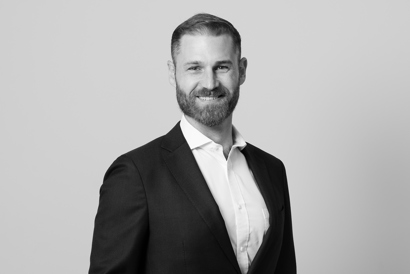As part of our launch of The Equity Project, Burford is honored to be joined by a group of outstanding lawyers and legal industry leaders who as Equity Project Champions are helping us bring attention to the need to provide economic incentives to help close the gender gap in law.
In September 2018, we interviewed some of our Equity Project Champions. We will share excerpts from their interviews and comments in a series of five posts.
We’re grateful to these and all of our Equity Project Champions for their invaluable support as well as their willingness to share their perspectives in their limited time.
Carolyn Lamm, Partner, White & Case
The Honorable Katherine B. Forrest, Partner, Cravath, Swaine & Moore
Dr. Nadine Herrmann, Managing Partner and Chair, EU and German Competition Law Practice, Quinn Emanuel
Nicole D. Galli, Managing Partner, Law Offices of N.D. Galli; Founder and President, Women Owned Law
Sue Prevezer QC, Chair, International Trial Practice, Quinn Emanuel
Roberta D. Liebenberg, Senior Partner, Fine, Kaplan and Black
Tara Lee, Co-Chair, Transnational Litigation Group, Quinn Emanuel
Alan Bryan, Senior Associate General Counsel, Walmart
Imagine that it’s 2028 and that the gender gap in law has shrunk considerably. What do you think that will look like? Beyond numbers, is there some other concomitant change you would expect to see in the business of law, say in its culture or values?
Tara Lee: Is it too much to dream that we wouldn’t still be fielding these questions? But you’ve asked what I expect to see in ten years, not what I hope. I think in ten years we will likely see more women at the helm of big firms, in management jobs. I think that’s going to be true in
the Fortune 500, too. The Harvard Business Review published a “CEO Genome Project”—a ten-year study collecting data on what traits make a Fortune 500 CEO successful which validates female leadership traits. And a widely quoted 2016 study shows that firms with women in the c-suite perform more profitably. So I think we are approaching a sea change in how leaders are chosen. The rest of the cultural changes will flow from there,
I think.
Nicole Galli: I struggled with this question, because I’m a bit cynical about how much can really change in ten years. So, let me rephrase the question: In order for us to considerably shrink the gender gap in ten years, what would we need to see? I think we would need to see more initiatives like The Equity Project. To bring about the kind of systemic changes the legal industry needs, women lawyers need financing; they need companies really focusing on supplier readiness training; they need support to grow their books and their firms; and of course they need fair compensation and recognition for their efforts. In short, there needs to be a lot of support and education to really achieve a change.
Carolyn Lamm: It’s hard to imagine how the future will be different, because successful women at firms and successful men at firms don’t perform tremendously differently. I like to think it
will be a kinder, gentler place
on my team, but I will still demand excellence. I do think there can be greater flexibility within the context of doing what needs to be done to be excellent for clients.
Nadine Herrmann: I would hope and expect that greater parity in numbers will also change the culture. Litigation, which is sometimes an overly testosterone-driven business, would especially benefit from more women in leading positions. In my experience, women are more focused on achieving the best possible bottom line result for a client, even if that means forgoing the sweet taste of a courtroom victory. We are also less interested in destroying the opponent and tend to avoid scorched earth tactics.
Alan Bryan: I think the gender gap will shrink, but I am more concerned that many legal institutions are not ready for how we will practice law—and that will have great impact on who is practicing law, vis-a-vis whether the gender gap can shrink at a time when the need for some legal services to be performed by lawyers will be shrinking itself. Through alternative service providers, technology, “The Big Four” and other non-firm entities increasingly performing work traditionally done by law firms, work moving in-house, disaggregation, and reduced corporate legal budgets, to name a few, the legal profession is rapidly changing. These changes have and will put pressure on
the law firm business model. They will affect law firms but also have a disparate impact on rising lawyers.
In addition to funding current generations of lawyers, we need to be thinking about training the next generation in business, operational and practical applications. Tomorrow’s lawyer will be business-focused, tech-savvy and more global-facing than ever before. That is a dramatic difference than lawyers of yesterday and many of today, and it is up to those of us navigating this transition to ensure diversity and inclusion is not lost in the shuffle.
Roberta Liebenberg: The attainment of increased gender parity should lead to a more inclusive and welcoming culture at law firms. Hopefully, such parity will help to halt the stampede of senior women out of the profession. Also, the achievement of that parity will hopefully be accompanied by more accommodations for both women and men who are balancing their professional obligations with their personal obligations to their families. Indeed, Microsoft is leading the way by now requiring its outside vendors, including law firms, to provide employees who handle Microsoft work with 12 weeks of paid parental leave. When larger numbers of men avail themselves of parental leave, part-time and flex-time policies, the longstanding stigma that has attached to the use of such policies by women should finally disappear. This should result in more women taking advantage of family-friendly policies.
This more inclusive and enlightened workplace culture will be a “win-win” all around for law firms, clients and individual attorneys, and will lead to increased job satisfaction and therefore less attrition.
Katherine Forrest: We have reached a moment in time in which workplace values such as work/life integration, flexible schedules and remote work arrangements—values that were traditionally considered to be most closely held by women—are coalescing with values held by younger generations, male and female alike. I suspect that in 2028 these values will become more prevalent and more the norm, with an increasing number of companies and law firms fostering environments in which high-level professional achievement is evidenced alongside significant time spent with family and friends and devotion to outside interests. As a result of law firms better reflecting these values—which will ultimately benefit all—I would not be surprised if women and men find the practice of law more attractive and fulfilling for their long-term career paths.
Read more of The Equity Project Roundtable Q&A




